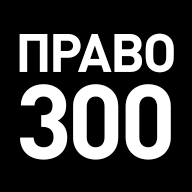RF Supreme court issues new explanations of assessment of action of trademark owners
On November 15, 2023, the Presidium of the Supreme Court of the Russian Federation approved a new review of judicial practice in cases related to the assessment of actions by trademark owners. This year, the Supreme Court of the Russian Federation focused on evaluating the fact of using a trademark and identified criteria for unfair competition.
The field of Intellectual Property (IP) is one of the most dynamically developing in modern civil law, making up-to-date explanations from higher courts especially important. The review covered several key theses deemed particularly interesting in this area.
The non-use of a trademark by the owner seeking judicial protection does not in itself indicate abuse of rights.
This precise formulation is significant in trademark disputes. The Supreme Court reiterates the importance of determining the actual will of the trademark owner and understanding their true intentions in using the trademark to assess the legality of their actions. The focus is on the intent behind the trademark use rather than just the act of using it.
An objection against granting legal protection to another person's trademark is not admissible if it is filed solely to harm that person and deprive them of the trademark rights. This addresses the situation where the challenge to trademark protection is motivated not by legitimate concerns, but rather by the intent to cause harm to the trademark holder.
The logical extension of the topic concerning the actual intent of a person becomes apparent in this conclusion. In this case, the non-use of the trademark by the objector becomes fatal to defending rights to it. This issue is particularly relevant today, as foreign companies from unfriendly countries face significant difficulties in establishing and extending legal protection of their trademarks in the Russian Federation and in their usage. In our view, these clarifications are intended to assist bona fide trademark holders (both Russian and foreign) in protecting their means of individualization.
The court establishes the fact of the applicant's awareness of another person's use of a designation when filing an application for trademark registration, taking into account how widely this designation is used, its originality, and recognizability.
This conclusion is an excellent tool for proving a case. Often, when dealing with parties with whom there were no contacts before the dispute, the fact of the applicant's awareness of another person's use of a trademark becomes almost unprovable. Thus, we can suggest the court to assess the likelihood that the applicant had seen this trademark before, and present evidence of its market recognition with a specific reference to the Supreme Court of Russia, making the position more convincing.
The termination of legal protection for a trademark by a court does not prevent the possibility of recognizing specific actions by the trademark owner as unfair competition when acquiring exclusive rights to the trademark if such actions were committed at the time of applying for its registration.
The court clarifies that actions directly related to the registration of a trademark can be considered by courts in the context of the trademark owner's subsequent behavior. This approach allows for assessing the good faith of the registration itself and re-evaluating the owner's actions in light of these facts.
When considering a claim to stop actions that violate the exclusive right to a trademark, such as prohibiting the sale of products bearing the trademark placed by the owner or with their consent, especially if the product was imported into Russia for circulation without the owner's consent, the court must assess the good faith of the person's actions.
This decision defends Russian entrepreneurs and encourages parallel import. It's logical: if you produce goods abroad, ban their import to Russia, yet have a trademark registered in Russia used solely to limit honest market participants, it's questionable. In a case reviewed by the Supreme Court of Russia, despite restrictions, goods were already imported into Russia. Destroying them violates the balance of interests in civil commerce. The court stresses the importance of establishing the trademark owner's good faith and the presence of a reasonable economic interest in their actions.
